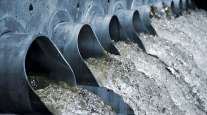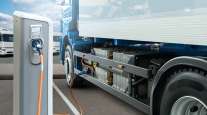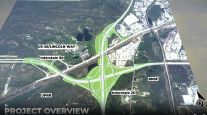Senior Reporter
House Plans Consideration of $1.5 Trillion Infrastructure Bill
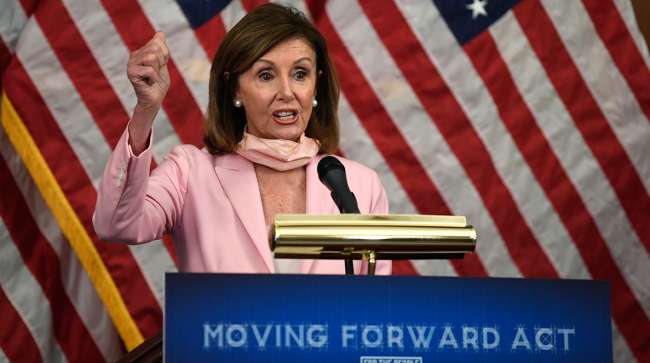
[Stay on top of transportation news: Get TTNews in your inbox.]
House Democrats plan to schedule a vote before July 4 on a comprehensive infrastructure measure that aims to modernize freight corridors, reduce traffic congestion and promote climate change resilience infrastructure.
Ahead of its floor consideration expected as soon as June 30, House floor managers are considering amendments to the 10-year, $1.5 trillion measure.
The infrastructure bill would address multiple priorities House Democrats have promoted during the congressional session. For instance, investments in infrastructure resilience would seek to ensure new projects have the capability of withstanding the impact of severe weather events as they also attempt to reduce carbon pollution.
Additionally, the legislation would seek to repair and upgrade highways and bridges via investments of about $300 billion. Transit systems would receive about $100 billion, and the advancement of complete streets designs would promote the safety of commuters, passengers and pedestrians.

COVID-19 has changed the rules of business, disrupted supply chains and created market volatility. Host Seth Clevenger revisits interviews with a broad range of industry experts and their evolving response to the pandemic. Hear a snippet, above, and get the full program by going to RoadSigns.TTnews.com.
Also, $1.4 billion would be dedicated for alternative fuel charging infrastructure. And $25 billion would fund the modernization of postal infrastructure.
“There is tremendous interest in the country in rebuilding the infrastructure. There’s tremendous interest among individual members about how we move forward and how it affects their areas,” Speaker Nancy Pelosi (D-Calif.) said on June 18. “When they see the legislation and people see how it does affect their areas, because this is not just a matter of transportation; it’s a matter of clean air, clean water. Some of these water systems are over 100 years old. They’re made of wood and brick.”
Included in the infrastructure package is a five-year, $494 billion highway reauthorization bill advanced along party lines by the House Transportation and Infrastructure Committee. The legislation, sponsored by committee Chairman Peter DeFazio (D-Ore.) seeks to update the 2015 FAST Act highway law that expires at the end of September.
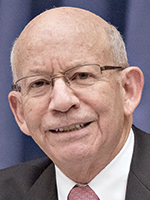
DeFazio
Provisions in the bill specific to trucking matters include an order to the secretary at the U.S. Department of Transportation to delay a new Federal Motor Carrier Safety Administration hours-of-service rule for commercial drivers until a lengthy, comprehensive review of its waivers, exemptions and related guidelines is finalized.
The bill also would increase from $750,000 to $2 million the minimum amount of liability insurance commercial motor vehicles are required to maintain, and it would promote access to truck parking nationwide.
Additionally, the bill would look to modernize railway grade crossing programs, enhance investments in research on automated vehicle safety and promote the deployment of autonomous vehicles. Democrats did not identify a sustainable source of funding for highway programs. The Highway Trust Fund account, which helps states maintain corridors, relies on insufficient revenue from the federal fuel tax, which is 24.4 cents per gallon for diesel and 18.4 cents per gallon for gasoline.
Infrastructure Bill by Transport Topics on Scribd
While infrastructure policy had often been seen as a bipartisan safe place, Republicans on the transportation panel criticized DeFazio and the rest of the bill’s managers for ignoring most of their input. As Rep. Sam Graves (R-Mo.) put it, “The Transportation and Infrastructure Committee Democrats passed their partisan $500 billion surface transportation bill that smothers those programs with costly Green New Deal mandates and requirements. The bill was developed entirely by the majority, without any clear concern for how much it would cost taxpayers or any serious effort to seek bipartisan solutions, resulting in unanimous opposition from Republicans.”
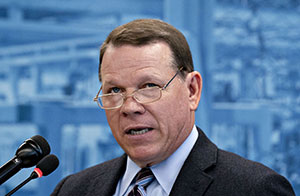
Graves (Andrew Harrer/Bloomberg News)
Graves, the panel’s ranking member, went on, “Now the bill has been completely swallowed up in the speaker’s partisan agenda and turned into a colossal $1.5 trillion wish list for the majority. Instead of trying to find a responsible way to pay for it and addressing the Highway Trust Fund’s solvency issues, the Democrats simply pile more debt onto future generations with a massive [Treasury] general fund bailout.”
Various stakeholders raised concerns about Democrats’ partisan approach, while others applauded the panel’s focus on concerns relevant to the freight and commuter sectors.
“Chairman DeFazio and the entire committee have produced a solid piece of legislation that authorizes a real and significant increase in funding for our roads and bridges, as well as a broad range of policies to improve highway safety,” American Trucking Associations President Chris Spear said June 19. “ATA supports this bill and appreciates the hard work of the committee members and staff, and we look forward to working with Congress to further improve this important bill as it continues through the process, and securing bipartisan support for an infrastructure investment package that provides real money for our roads and bridges.”
A Senate Republican-led committee approved a five-year highway bill that, like the House bill, lacks a meaningful source of funding. The Senate measure also lacks input from committees that oversee matters having to do with freight, transit and tax policy.
Meanwhile, President Donald Trump, who had recently suggested borrowing $2 trillion to offset infrastructure policy programs, has not outlined this year a plan for rebuilding roads, bridges, tunnels, ports, and railways. During his first presidential campaign, Trump discussed his infrastructure bona fides.
Want more news? Listen to today's daily briefing:
Subscribe: Apple Podcasts | Spotify | Amazon Alexa | Google Assistant | More


